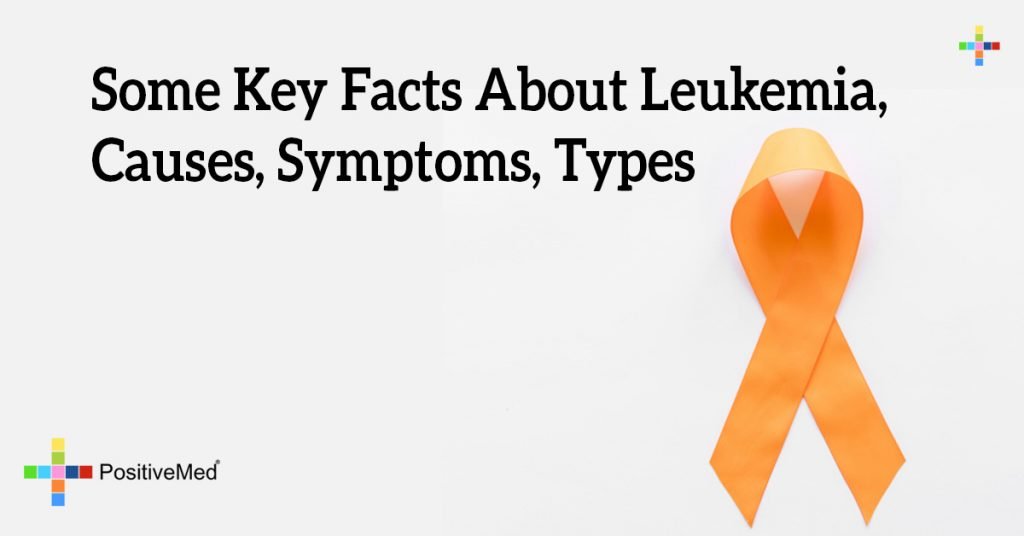
Some Key Facts About Leukemia, Causes, Symptoms, Types
The word leukemia is derived from the Greek “Leukos” which means white and “aima” which means blood. Its basically a cancer of the blood or bone marrow that produces blood cells. With leukemia a person suffers from an abnormal production of white blood cells, or leukocytes.
In this type of cancer the DNA of white blood cells is damaged which causes the white blood cells to grow and divide in an abnormal or chaotic way. Usually the normal blood cells die after some time and are replaced by new cells produced by bone marrow, but these abnormal cells do not die easily and continue to accumulate which requires more and more space. This leads to less space for normal blood cells and the sufferer starts feeling ill. The bad cells overshadow the good cells.
Let’s take a deeper look at how bone marrow works:
Bone marrow is found inside bones, the marrow in large bones of humans produces blood cells. Bone marrow is about 4% of our total body weight.

We can divide bone marrow into two forms;
1. Red marrow, which is mainly made up of myeloid tissue
2. Yellow marrow, mainly made of fat cells.
Red marrow is usually found in flat bones like breastbone, skull, vertebrae, shoulder blades, ribs, and hip bones. Its also found at the end of long bones like the humerus and femur. Both white and red blood cells are produced in red marrow as are platelets. Yellow marrow is found in the middle section of the long bones.
Types of Leukemia –
There are 4 main types of leukemia:
1. Acute Lymphocytic Leukemia (ALL)
Also known as lymphoblastic leukemia which is the most common form of leukemia in children and adults over 65. The survival rates for at least 5 years range from 85% in children to 50% in adults.
2. Chronic Lymphocytic Leukemia (CLL)
This is most common in those age 55 and over, although younger adults can get it. It rarely affects children. The majority include men with more than 60% of the total. 75% of treated patients survive for over 5 years. Per experts, it is incurable and very dangerous.
3. Acute Myeloid Leukemia (AML)
It affects men more than women and adults more than children. Chemotherapy is the treatment of choice. 40% of those treated survive over 5 years. This type of leukemia grows rapidly.
4. Chronic Myeloid Leukemia (CML)
This mostly affects adults, 90% of those treated survive more than 5 years. Chemotherapy is needed.
Causes of Leukemia
– Experts are not sure about the causes of leukemia, but there are several factors that are known for increasing risk. You are more prone to get leukemia if:
1. You have been exposed to a large amount of radiation
2. You have been exposed to certain chemicals like benzene
3. You went through chemotherapy to treat another type of cancer
4. You smoke
5. You have Down’s Syndrome or another genetic disorder

Symptoms of Leukemia are:
1. Fever and sweat at night
2. Headaches
3. Poor blood clotting
4. Anemia
5. Affected immune system
6. Fatigue
7. Losing weight and loss of appetite
8. Bleeding easily
9. Swollen or painful belly from an enlarged spleen
1. Approximately every 4 minutes an American is diagnosed with cancer.
2. It is the 10th most common type of cancer in all races and ethnicities.
3. The acute form of leukemia progresses rapidly. Its most common in children and the chances of relapse are more after treatment.
4. The chronic form of leukemia progresses slowly and mainly affects adults
5. Leukemia is the cause of 1/3 of the deaths caused by cancer in children under the age of 15.
6. Men are more prone to this disease and 31% more men are living with leukemia than women.
7. Drugs with alkylating agents used in chemotherapy are linked with occurrence of leukemia after long-term therapy.





